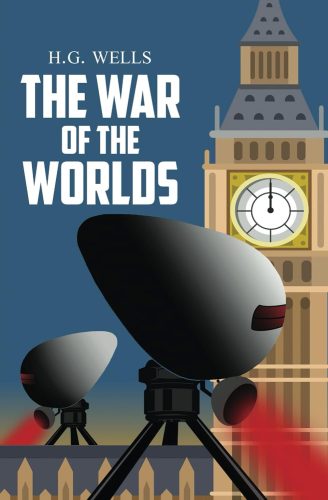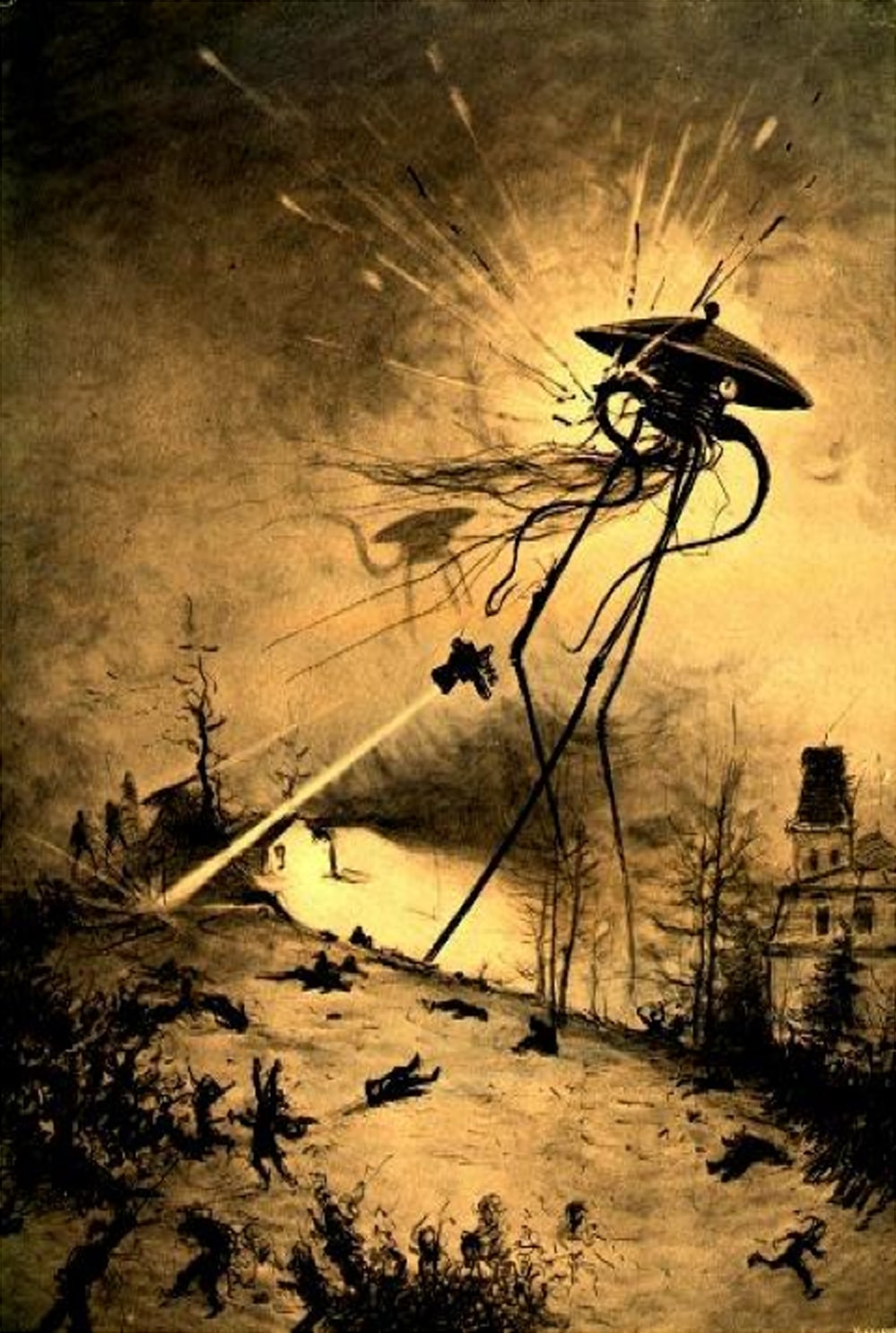 “This isn’t a war. It never was a war, any more than there’s war between man and ants.”
“This isn’t a war. It never was a war, any more than there’s war between man and ants.”
Author: H.G. Wells
H.G. Wells created the entire genre of alien invasion survival narratives. The way we imagine it now – through TV, movies, books, comics, you name it – all points back to The War of the Worlds. Now, I’m a fan of disaster fiction, and I’ve been salivating to get some time with this classic for years. Finally, I had the book and the time, but I quickly discovered that my anticipation outweighed the actual power of the narrative, if not its amazing imaginative legacy.
The story opens with an unnamed male narrator, an average British man having an average day. He doesn’t know to appreciate it for what it is, to enjoy his last tea, his conversation with his wife, the sunshine, the very ordinariness of life.
Shortly, a strange cylindrical object from space lands in Woking, a suburb near London. Curious spectators gather to see the object, only to be incinerated by Martian technology. The Martians themselves are slender, pathetic creatures, but the destructive machines they drive soon take over the countryside. They feed on both humans and fear, it seems, and they are intent on claiming this planet as their own. As more machines land and the Martians begin their march across the countryside and towards the thriving metropolis of London, humanity makes many weak and pathetic attempts to thwart the invasion. Meanwhile, our narrator survivors, is separated from his family, and in his misadventures to find them, he describes what he sees, who he meets, and how different people deal with the crisis – from hysteria to valiant heroics.
Our unflappable narrator epitomizes the British stiff-upper-lip, and while he describes emotions and horror, etc. it doesn’t really come through. Frankly, the narrative is dry. It has the factual tone of an old history book, recounting some long-ago event. Because of this, we don’t feel the danger, the terror, the uncertainty. Our unnamed narrator is telling the story with apathetic passivity – a disconnected, almost disinterested narration. I found myself getting bored, drifting. I felt like I was reading a J-Store article instead of living through a survival story of alien horror alongside the characters.
As the story progresses, the creativity of the Martian’s technology (namely the machines they inhabit and drive) kept me somewhat engaged. I was able to shrug and say: “Yeah. I see how that created a super cool genre. Too bad this is boring”
The conclusion is likewise lackluster. It felt like a cop-out. Humanity does not rise above and band together. We don’t even get a world view. It seems that this major event, the Martians themselves, are only interested in London, not the world, and a dues ex machina moment saves humanity. From there, they somehow get enough information from the defeated army to put together a story about why the Martians came, and we’re back to tea and toast and tramways in London.
The War of the Worlds is a short book. An important one that defines narratives that are still evolving. Yet, it’s just an ok read. It’s better in the objective – far what it did – than for what it is. Perhaps if this had been my first encounter with the idea and genre, then I, like the original readers, would have been mesmerized. But the idea is no longer unique and honestly, others have stood on the should of this giant and made it better. I recommend it, but I suggest limiting your expectations and approaching it from the view of what it did for science fiction instead of expecting a bombshell story.
– Frances Carden
Follow my reviews on Twitter at: https://twitter.com/xombie_mistress
Follow my reviews on Facebook at: https://www.facebook.com/FrancesReviews
- Book Vs Movie: The Shining - April 6, 2020
- Thankful For Great Cozy Mysteries - December 13, 2019
- Cozy Mysteries for a Perfect Fall - October 20, 2019



